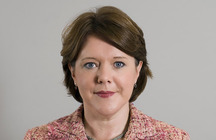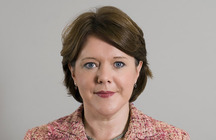UK culture secretary, Maria Miller
The online and media industries should work with regulators to make the “age appropriateness” of web content clearer, according to culture secretary Maria Millier.
Speaking at the Oxford Media Convention, Miller said that she had tasked UK broadcast regulator Ofcom with kick-starting these efforts in a bid to establish “transparent media standards” for the online age.
“With people old and young alike increasingly able to access not only broadcast channels on their TV, but hundreds of YouTube channels, as well as videos on social media, can be unclear to consumer which standards apply and to parents what broadcasting controls apply, if any. It is important that viewers can be confident about what they are getting at the press of a button,” said Miller.
Though she conceded that the likes of the BBC and YouTube are already actively signalling if content is inappropriate for young audiences, she said “there is a responsibility to help make this clearer still.”
“I would like industry and regulators to come together to assess how they can most effectively give consumers clarity about the standards that apply across different platforms, and how they complain if those standards are not met,” said Miller.
In a presentation discussing ‘the rights and responsibilities of the internet age’ the minister for culture, media and sport also said that viewers would not “sneak into a shop” and steal a film off the shelf, so they should not “do the online equivalent” and download illegally.
“It’s about good citizenship… as well as what’s legal and what’s not,” she said.
In a question and answer session, she also addressed the prospect of changes to the TV landscape in Scotland should it vote for independence later this year, claiming that the country would lose the BBC if it does not remain part of the UK.






